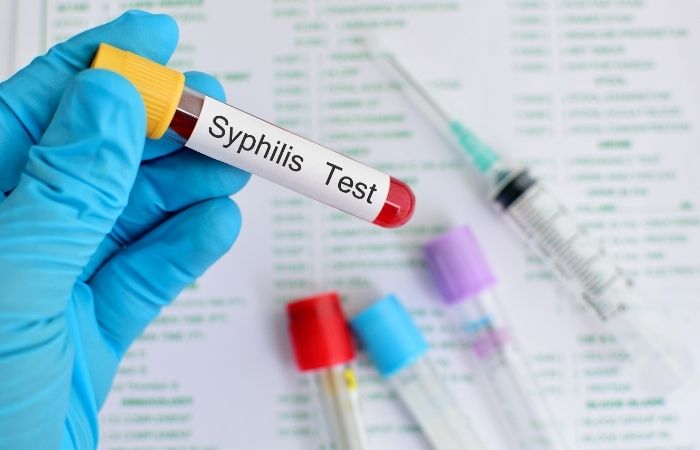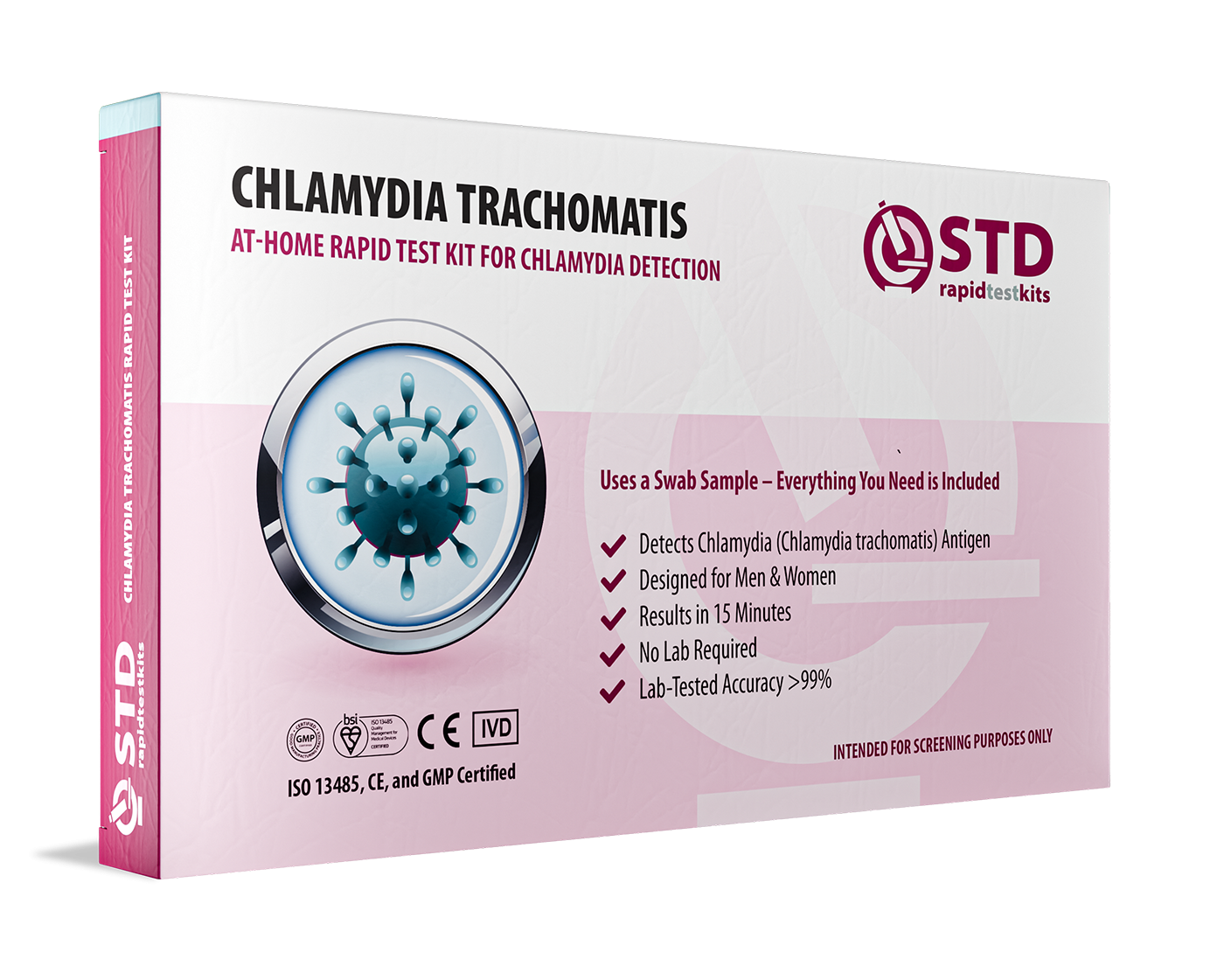Why You Can Still Get an STD from Someone Who Says They're Clean
Overview of the Issue
Most people don’t plan to give someone an STD. It happens because of late diagnoses, no symptoms, misinformation, or denial. But when it does happen, the emotional fallout can be just as intense as the physical symptoms. Guilt. Shame. Panic. And that gut-dropping question: “Did I just ruin everything?”
The truth is, STDs are common, manageable, and not a character flaw. According to the CDC, 1 in 5 people in the U.S. has an STI at any given moment. That includes people who are kind, responsible, and deeply in love. This blog is for anyone who’s ever had to utter those five gut-wrenching words: “I think I gave you something.”
Key Benefits of Owning the Truth
So what actually happens when you tell someone you’ve exposed them to an STD? In real life, not movies or Reddit horror threads, disclosure can be a bridge, not a bomb.
Here’s what telling the truth can actually do:
- Build Trust: Being honest about your status shows integrity and respect, even when it’s hard.
- Enable Early Testing: The sooner your partner knows, the sooner they can get tested and treated if needed.
- Protect Others: Disclosure can stop the cycle, your partner won’t unknowingly pass it on.
- Promote Emotional Healing: Guilt thrives in secrecy. Honesty creates space for forgiveness, both theirs and yours.
Many partners appreciate the courage it takes to own up. And yes, some get angry or hurt. But if the relationship was rooted in care, disclosure becomes a doorway to rebuilding, not a dead end.

People are also looking for: Can a cheating partner give me HPV or Herpes even if they wore a condom?
Challenges and Risks
Let’s not sugarcoat this. Telling your partner you gave them an STD is one of the hardest conversations you’ll ever have. It can spark fights, trigger trauma, or even end the relationship. But here’s what’s worse: lying, delaying, or pretending it didn’t happen.
Major risks to be aware of:
- Emotional Fallout: Your partner may feel betrayed, disgusted, or afraid, especially if they experience symptoms.
- Legal Consequences: In some states and countries, knowingly exposing someone to an STD without disclosing it can carry legal penalties (especially with HIV or syphilis).
- Loss of Trust: Even if the infection was unintentional, lack of disclosure can permanently damage the relationship.
This is why honest communication matters. You’re not just managing biology, you’re navigating human pain, expectations, and love.
Solutions and Recommendations
Once you realize what’s happened, the clock starts. Here’s what to do next, not perfectly, but responsibly:
- Get Tested (Again): Even if you’ve tested before, re-test to confirm your status. Use an at-home kit like the Complete STD Home Test Kit Package for fast results.
- Prepare to Tell Them: Do it in person if you can. Stay calm. Focus on facts. Example: “I tested positive for herpes, and I think I may have passed it to you without realizing.”
- Offer Support: Bring resources. Offer to test together. Be available for questions, even the angry ones.
- Stay Empathetic: You’re not the victim here, but you’re not the villain either. Hold space for their reaction without disappearing into shame.
It might feel like your love life is over. It’s not. It’s just asking for more honesty than you planned on giving.
Check Your STD Status in Minutes
Test at Home with Remedium7-in-1 STD Test Kit

 For Men & Women
For Men & Women Results in Minutes
Results in Minutes No Lab Needed
No Lab Needed Private & Discreet
Private & DiscreetOrder Now $129.00 $343.00
For all 7 tests
Statistical Insights and Data
If you’ve given someone an STD, you’re far from alone. According to the CDC’s 2023 surveillance report, there were over 2.5 million reported cases of Chlamydia, Gonorrhea, and Syphilis in the U.S. alone, and that doesn’t include the millions more unreported or undiagnosed cases. Many of these infections were passed unknowingly, without symptoms, or during relationships where no one suspected a thing.
Some key numbers that may ease the shame spiral:
- Nearly 1 in 2 sexually active people will contract an STI by age 25 (American Sexual Health Association)
- 80% of people with Herpes don't know they have it, but can still transmit it (Johns Hopkins)
- HPV is so common that nearly all sexually active people will get it at some point (CDC)
This isn’t about making excuses. It’s about replacing panic with perspective. STDs aren’t proof of irresponsibility, they’re a reflection of how common sex is, and how limited our conversations around testing and disclosure still are.
Expert Opinions and Case Studies
When it comes to disclosure, experts emphasize two things: timing and tone.
“Disclose as soon as you know, or suspect, you may have exposed a partner,” says Dr. Renee Carlson, MPH, a sexual health clinician in Chicago. “Even if you're waiting for test results, give them the heads-up. That’s what care looks like.”
And what about the fallout? In a 2021 study published in the journal Sexual Health, researchers found that 64% of people who disclosed a positive STD status to their partner received supportive or neutral reactions. Only 13% reported a breakup or permanent relationship change.
Case study (anonymous):
“I told my boyfriend I might’ve given him Gonorrhea,” said a 28-year-old reader we’ll call Maya. “He was quiet at first. But he ended up thanking me for being honest and got tested the next day. We’re still together. Stronger, actually.”
The risk is real, but so is the potential for resilience.
Historical Context
STD stigma didn’t start with you, and it won’t end with this blog. But understanding its roots helps disarm some of its power. Historically, STDs have been used as moral judgments: punishment for promiscuity, signals of “dirty” behavior. This thinking dates back centuries, especially with diseases like Syphilis and HIV, which were often associated with marginalized communities and demonized in media.
The result? A culture where silence became safer than honesty, and diagnosis meant social exile. It’s no surprise that many people wait until they’ve “got proof” or “can’t hide symptoms” before saying anything.
But the tides are shifting. Thanks to sexual health advocacy, inclusive education, and the availability of at-home STD test kits, disclosure is becoming less of a bombshell and more of a shared health check-in.

People are also reading: Is Your Monogamous Relationship as Safe as You Think?
Future Trends
Technology is changing the STD game, and that includes how we disclose exposure. Platforms like TellYourPartner.org and Don't Spread It allow for anonymous, respectful STD notifications. At-home test kits let partners test together without scheduling awkward clinic visits. Even dating apps are including STD disclosure prompts or health status badges.
Here’s what’s coming next:
- Telehealth Counseling: Sex therapists and STD counselors available via video call for couples navigating disclosure or rebuilding intimacy.
- Early-Diagnosis Tools: Rapid at-home testing for early-stage HIV, Syphilis, and Herpes, without waiting for symptoms.
- Smart Disclosures: Digital services that timestamp when you got tested and show your partner your real-time results (if you choose).
The goal? Make STD conversations as normal as STI transmission already is.
Practical Applications
If you’re reading this, you might be sitting with your phone, heart pounding, waiting to hit “send” on the text that could change everything. So let’s zoom in on the now. Here’s how to take this from panic to plan:
- Test Together: Turn disclosure into a shared step, not a solo guilt trip. Use a private, fast STD Rapid Test Kit to take control together.
- Set Boundaries: If your partner is overwhelmed, suggest a pause and a future check-in. Emotional pacing matters.
- Rebuild Intimacy Gradually: Don’t expect sex to resume right away. Focus on emotional closeness and touch that isn’t genital.
- Use Resources: STD support groups, Reddit communities, or couples therapy can help you both navigate this without shame.
The road ahead might include awkward silences, tears, even anger. But it can also include healing, clarity, and maybe a better sex life because you finally started talking about the hard stuff.
Personal Stories or Testimonials
Jordan, 35:
“I gave my girlfriend chlamydia. She cried for hours. But we talked through it, got tested, and both started therapy. She’s still with me. We use this story now to talk about trust with our friends.”
Nina, 27:
“I told a guy I had HSV-2 before we ever hooked up. He thanked me, for being brave. Even though we didn’t work out, I don’t regret it. I respect myself more.”
Everyone’s story is different. Yours might be a rupture or a rebirth. Either way, it’s survivable. And you’re not broken.
Check Your STD Status in Minutes
Test at Home with RemediumChlamydia Test Kit

 For Men & Women
For Men & Women Results in Minutes
Results in Minutes No Lab Needed
No Lab Needed Private & Discreet
Private & DiscreetOrder Now $33.99 $49.00
Common Misconceptions
Myth 1: “If I gave someone an STD, I’m a bad person.”
Truth: No, you’re a human being who’s navigating a deeply stigmatized, common health issue. Guilt is normal. Shame isn’t helpful.
Myth 2: “If they never got symptoms, I don’t need to tell them.”
Truth: Many STDs are asymptomatic but still transmissible. Disclosure helps your partner protect themselves, and future partners.
Myth 3: “If I tell them, they’ll hate me forever.”
Truth: Some will get upset. Many won’t. What they value most is honesty, not perfection.
FAQ
1. Can I go to jail for giving someone an STD?
In some regions, knowingly transmitting certain STDs (like HIV) without disclosure is criminalized. Laws vary by state or country, so check your local statutes.
2. How do I even start the conversation?
Use clarity and care. Say something like: “I just got my test results and want to talk with you. I think I may have exposed you to something unintentionally.”
3. Will my partner break up with me?
They might, but many don’t. Studies show most people react with understanding or curiosity, not rejection.
4. Can you still date after giving someone an STD?
Absolutely. Many people go on to have fulfilling, trusting relationships, even with the same person.
5. What if they ghost me after I tell them?
It hurts, but it’s not a reflection of your worth. You did the right thing. Their silence is theirs to own, not yours to internalize.
6. How long should I wait to tell them?
As soon as possible. Waiting increases the chance of complications or unintentional spread.
7. Is it better to tell them anonymously?
If safety is a concern, yes. Use services like TellYourPartner.org. Otherwise, direct and respectful is ideal.
8. Can I still have sex with them after I tell them?
It depends on the infection, treatment status, and mutual consent. Use protection and follow medical advice.
9. Do I need to apologize?
Yes, if it’s genuine. Even if it was unintentional, acknowledging the harm matters.
10. What if I don’t know who gave it to me?
You’re not alone. Many STDs don’t show up for weeks. Focus on what you can control: honesty, testing, and care.
Conclusion: You’re Not a Villain. You’re Just Human
If you gave someone an STD, it doesn’t mean you’re reckless, dirty, or unforgivable. It means you’re part of a huge, silent majority navigating sex, trust, and health in a world that rarely prepares us for any of it. What you do next is what matters most. Truth heals. Testing empowers. Care continues.
Whatever happens with your partner, whether it leads to tears, a hug, or separate paths, you’ve taken the most important step: ownership. That’s how relationships grow. That’s how shame dies. That’s how people who make mistakes become people who take action.
You deserve support. They deserve honesty. And both of you deserve clarity. You can't undo what happened, but you can make empowered choices from here. Start with a test.
Sources
1. STD Surveillance 2023 – CDC
2. Sexually Transmitted Infections – WHO
3. STD Disclosure in Relationships – NCBI
4. STD Testing and Treatment – Planned Parenthood
5. STD Symptoms and Causes – Mayo Clinic
Written by M.D.F. Davis, reviewed by Dr. Alex Hart, MPH










